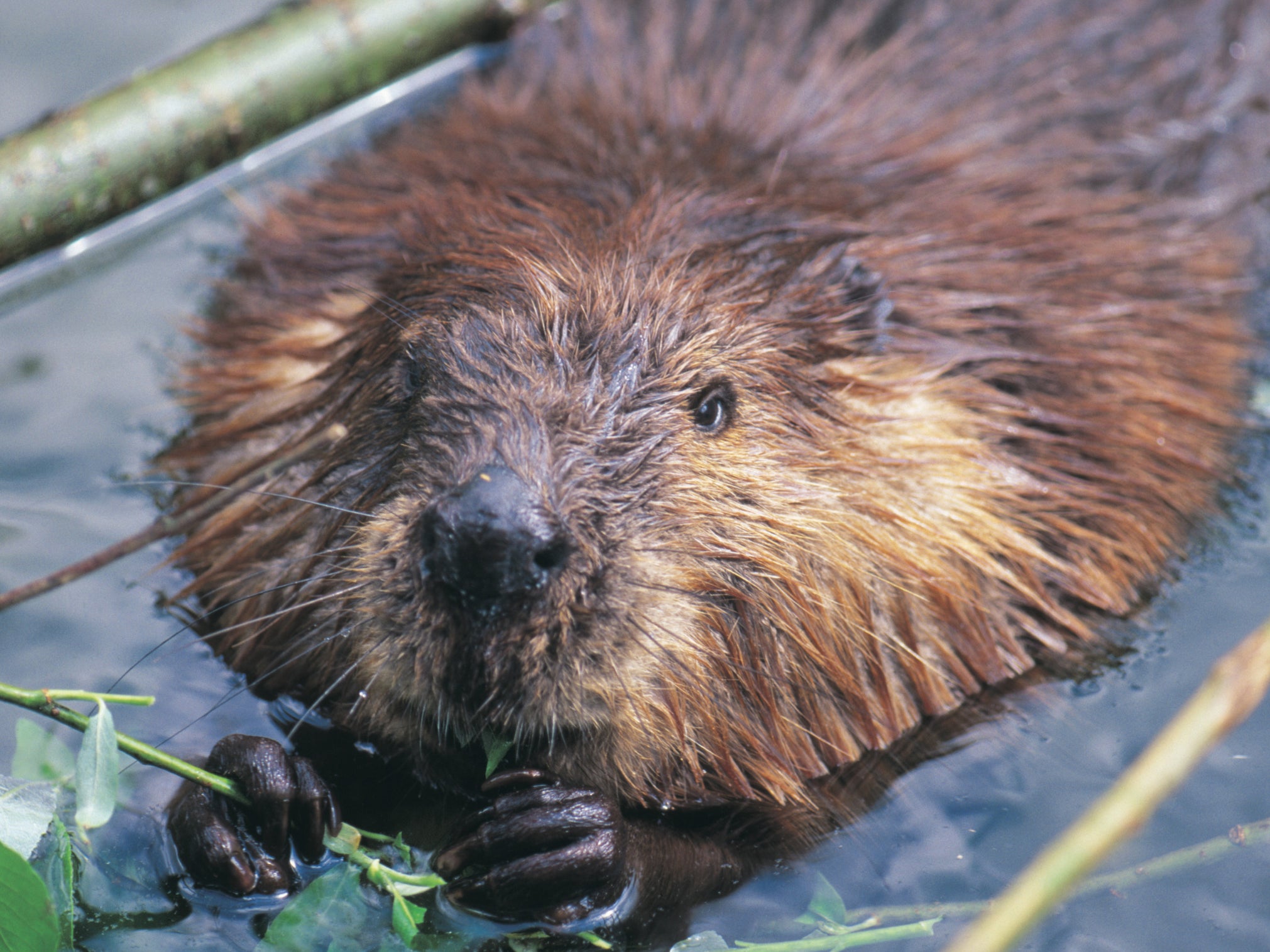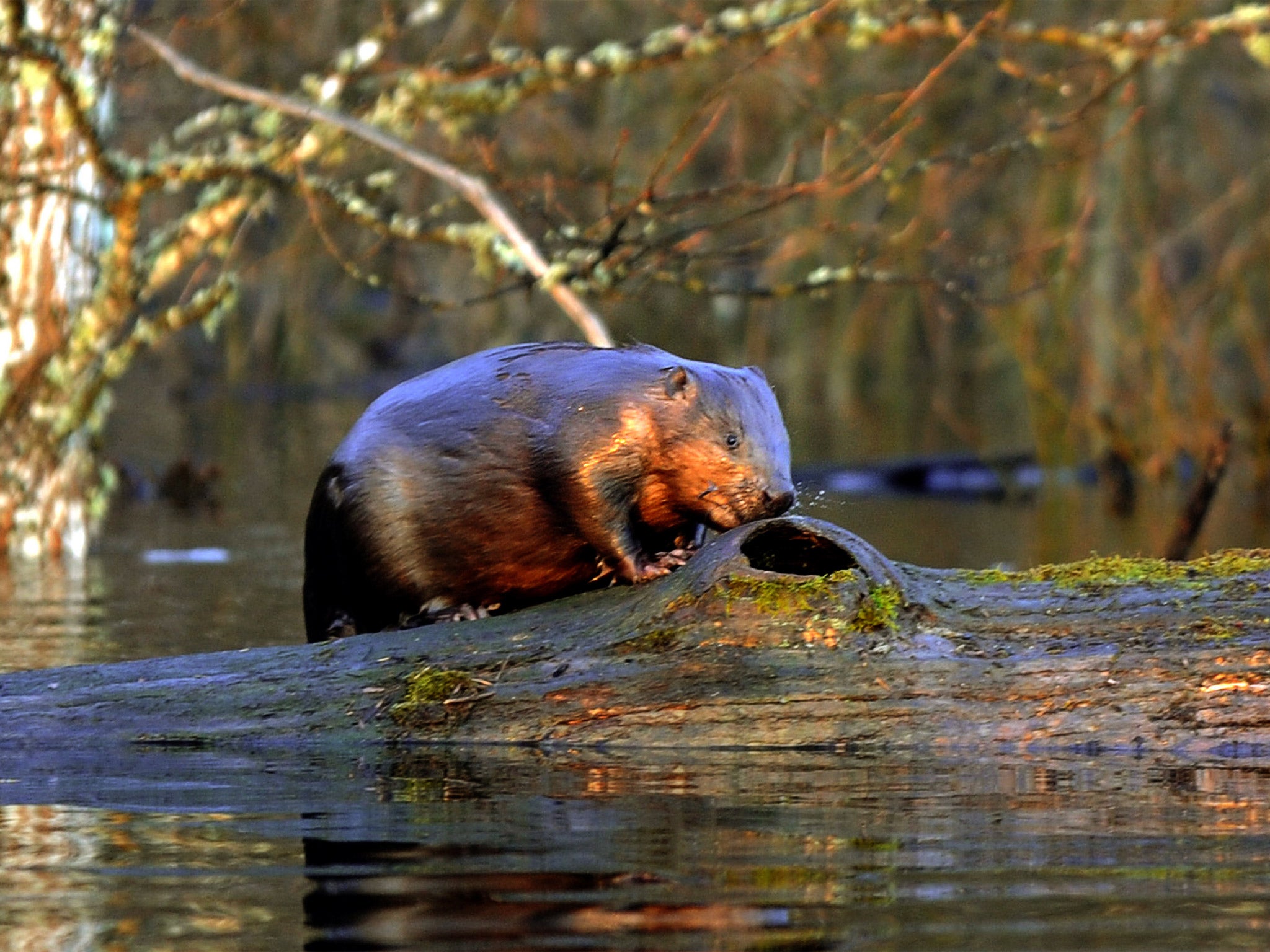First wild beavers spotted in England for 800 years could be trapped and put in zoo by Government
Defra was concerned over them carrying a destructive parasite

Your support helps us to tell the story
From reproductive rights to climate change to Big Tech, The Independent is on the ground when the story is developing. Whether it's investigating the financials of Elon Musk's pro-Trump PAC or producing our latest documentary, 'The A Word', which shines a light on the American women fighting for reproductive rights, we know how important it is to parse out the facts from the messaging.
At such a critical moment in US history, we need reporters on the ground. Your donation allows us to keep sending journalists to speak to both sides of the story.
The Independent is trusted by Americans across the entire political spectrum. And unlike many other quality news outlets, we choose not to lock Americans out of our reporting and analysis with paywalls. We believe quality journalism should be available to everyone, paid for by those who can afford it.
Your support makes all the difference.The first wild beavers to be seen in England for up to 800 years could be captured and put in a zoo because the Government believes they could be a danger to other wildlife.
Three European beavers were confirmed to be living in the River Otter in Devon earlier this year.
In footage taken by night vision cameras they were seen gnawing at trees and playing together.
Animal groups and wildlife experts were jubilant at the discovery, which signalled the species had started breeding in the wild once more.
But there were concerns that the Department for Environment, Food and Rural Affairs (Defra) may start a cull over the possibility of them carrying a destructive parasite.
Minister George Eustice ruled out killing the beavers in a written answer to a Parliamentary question.
“We intend to recapture and rehome the wild beavers in Devon and are currently working out plans for the best way to do so,” he said.
“All decisions will be made with the welfare of the beavers in mind. There are no plans to cull beavers.”

Defra is now trying to work out how to catch the animals and find a home for them in captivity.
In the last 15 years, attempts to re-introduce Eurasian beavers have been made in Kent, Groustershire, Lancashire and Scotland but the Devon family is believed to be the first born in the wild.
The animals were hunted to extinction in England in the 12th Century and disappeared from the rest of the UK in the 16th Century.
They were once widespread in the UK but were killed for their highly valued fur, medicinal value and meat.
The Devon Wildlife Trust welcomed the new residents in the county but acknowledged that re-introduction should be “properly planned”.
A statement after the discovery of the beavers said their return will be of “overall benefit” to river and wetland habitats in the UK.
It added: “We believe that they should be left alone and observed using a rigorous monitoring programme.
“This group of beavers provides us with a unique opportunity to learn lessons about their behaviour and their impact on the local landscape.”
The Angling Trust was not so enthusiastic, saying its members needed more beavers “like we need a hole in the head” and maintaining they had the “right” to shoot them as an invasive species.
Additional reporting by PA
Join our commenting forum
Join thought-provoking conversations, follow other Independent readers and see their replies
Comments